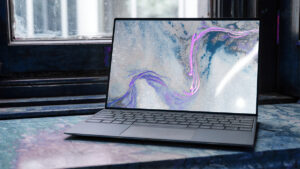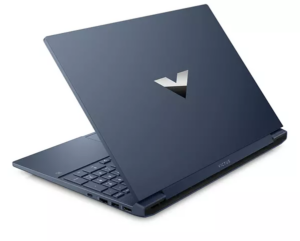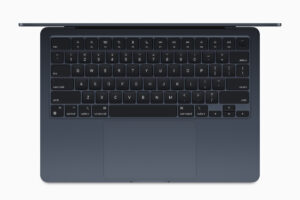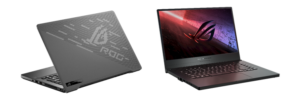Here, Student Circuit takes a look at the best laptops for student engineers in 2023, highlighting the very best across a range of criteria.
Engineering students sit as one of the highest to benefit from a good choice in laptop to pair with their degree. For many reasons a student engineer will find themselves needing a device that can pack a processing and graphical punch, all whilst maintaining portability and longevity. Here we will take a look at some of the best options currently on the market, whether you want a solid all-rounder, the best-of-the-best, or are working to a budget.
Why a laptop is important
A crucial instrument for engineering students, the optimal laptop becomes indispensable whether you’re delving into intricate CAD designs, simulating complex algorithms, or analysing extensive datasets.
Engineering students frequently engage with resource-intensive software applications like CAD (Computer-Aided Design), simulation software, and integrated development environments for programming. A powerful laptop, equipped with a speedy processor, ample RAM, and a dedicated graphics card, can efficiently handle these demanding tasks, ensuring smoother operation and heightened productivity.
Beyond just the power, mobility is paramount for engineering students, who often shuttle between lectures, laboratories, libraries, and collaborative group projects. A lightweight and portable laptop allows students to effortlessly transport their work and studies, ensuring they remain productive wherever their academic pursuits take them.
With these in mind, let’s take a look at some of the best options out there:
Dell XPS 15 – The current crown holder – ~£1499

Dell takes the crown as offering one of the best choices out there for any students in need of a well-built, powerful, portable laptop with its XPS 15 model.
All versions of the updated Dell XPS 15 are equipped with the latest Intel Core CPUs and come bundled with Windows 11. The higher-end configurations boast an Nvidia GPU, providing significant computational power for tasks like CAD work and gaming so you can enjoy some downtime. The performance capabilities packed into this portable laptop make the XPS 15 an outstanding choice for engineering students, and that’s even before factoring in the impressive speakers and InfinityEdge display.
If you have the budget for it the 3.5K OLED touchscreen upgrade is another bonus, enhancing the visual experience for all your tasks. However, it’s worth noting that the OLED model has a negative impact on battery life lasting under 8 hours in battery tests, which might not be ideal if you require your laptop to last through a full day of classes. If you don’t feel as if you need the OLED display or the higher resolution for your work, then sticking to the XPS 15 with a discrete Nvidia GPU and a FHD 1,920 x 1,200 display will more than suffice. This configuration should provide a longer battery life with its lower-resolution screen.
You can find a link to the product here.
HP Victus 15 – The budget baron – ~£500

The great value for money, a solid overall performance and great versatility, HP offers students an affordable laptop that still packs a punch with its Victus 15 model.
Despite being marketed as a gaming laptop, the HP Victus 15 distinguishes itself through its simplistic design, eschewing the ostentatious ‘gamer aesthetic’ often associated with high-performance laptops. Its inclusion of RTX graphics renders it a reliable choice for engineering students tackling graphically intensive tasks.
It offers an impressively budget-friendly option for a laptop equipped with a discrete GPU, making it an appealing choice for budget-conscious engineering students. During testing, it slightly lagged behind other gaming laptops in standard benchmarks, albeit not significantly. Notably, it prioritises efficient airflow with a dual-fan system and a generously sized bottom air vent.
Sporting a 15.6-inch FHD display and robust build quality, the HP Victus 15 may not be the lightest option available, but it excels in doubling as both a desktop replacement and a versatile tool for on-the-go work. It also caters to environmental concerns, as its chassis incorporates post-consumer-recycled plastic and eco-friendly water-based paint.
The major flaw in this laptop, like most gaming-oriented laptops, is battery life, which isn’t ideal for a full day of classes. The device can sustain itself for approximately four and a half hours, but it is advisable to opt for the safer route of keeping it continuously connected to the charger. Fortunately, its recharging time is reasonably efficient, so you won’t have to endure extensive wait times when using the default charger. However, if you require a swifter charging solution, it may be worthwhile to consider investing in a USB Type-C charger.
You can find a link to the product here.
Microsoft Surface Laptop 4 – The mid-table maestro – ~£999

An excellent choice for engineering students with a diverse range of tasks, from design projects to content creation, the Surface Laptop 4 stands out as a great option and perhaps one of the best offerings from Microsoft.
The Surface Laptop 4 offers a wide range of configurations, catering to the diverse needs of students. The choice between a 13.5-inch or 15-inch screen size is available if you want that extra screen space. In particular, the laptop’s 3:2 PixelSense display is visually impressive, offering a high level of visibility and clarity at a great refresh rate. Moreover, both models can be equipped with either Intel or AMD processors, allowing users to align themselves with either Team Blue or Team Red, depending on their preferences.
Overall, this product exudes a delightful charm; the generously sized and responsive keyboard and trackpad make for a seamless user experience, while the touchscreen functionality supports the Surface Pen, ideal for creative pursuits. If there’s one noteworthy critique, it’s the relatively limited array of physical ports, consisting of just one USB-C and one USB-A. Additionally, the Alcantara fabric used on the palm rest of the 13.5-inch model is prone to picking up dirt quite easily.
You can find a link to the product here.
Apple MacBook Air 2022 (512GB)– For the ardent Apple advocates – ~£1329

The Apple MacBook Air 2022 is one of the better MacBooks Apple has produced in recent years, especially for students who appreciate charge and portability. Despite it lacking an AI-assisted GPU like many others on this list, Apple’s silicon chip offers genuine competition within a lightweight package.
The new MacBook Air benefits from the power of the ARM-based Apple M2 chip, delivering a thin and lightweight laptop that not only delivers performance but also remarkable battery life, likely setting the bar in this category.
However, the glaring problem with Apple remains, price. It’s safe to say that if you were to chuck the same amount of money at an alternative you’d wind up getting more bang for your buck, something that is integral as an engineering student. It’s always wise to keep in mind the fact that you will be partially paying for the name when it comes to Apple. However, if you are happy to do so, not a lot comes close to the elite lightweight feeling of Apple, nor to its battery capabilities.
It should also be worth noting that before settling on a MacOS product, ensure that all applications you will be using run on Apple’s operating system, as many engineering programs, such as Autodesk, are Windows/Linux exclusive.
You can find a link to the product here.
Asus ROG Zephyrus G14 – Admirable from Asus – ~£999-£1899

Asus have built a great laptop here with strong performance, display, audio, and impressive battery life all whilst maintaining portability – the caveat? Inconsistent price availability.
If you can nab it on a sale, the Asus ROG Zephyrus G14 is a strong contender for the best-of-the-best, however, at peak price, it can demand a bit too much money for most students. The 14-inch laptop is built from the ground up for gaming performance on the move, but this power can be readily repurposed by engineering students for more productive uses.
Above all, what sets Asus’ ROG Zephyrus G14 laptop apart from the competition is all that power with a remarkable 10+ hours of battery life whilst still being wonderfully portable and sleek. This means it’s an excellent choice for a full day of classes on all fronts.
Overall, this is a great option – just as long as you can find one on a decent sale, maybe one to consider for a Black Friday deal if you can hold out for now!
You can find a link to the product here.
Worthy warriors to consider
MSI Cyborg 15 – ~£1000
Priced at the £1000 point, the MSI Cyborg 15 is a gaming laptop with a cyberpunk-inspired design that offers robust performance without breaking the bank. Equipped with a 13th Gen Intel Core CPU and an Nvidia RTX 4050 GPU, this laptop provides commendable graphical and computational capabilities within the £1000 price range, making it an appealing choice for engineering students. With a 144Hz 15.6-inch display, it offers an immersive gaming experience on top of this, making it an excellent entry-level option for those venturing into the world of PC gaming, or those already there.
You can find a link to the product here.
HP Spectre x360 (2022) – ~£900
For engineering students seeking a laptop with tablet functionality, the Spectre x360 is an ideal choice. It features a multi-touch OLED display that offers a fantastic user experience. The 2-in-1 design is sleek and well-crafted, allowing for seamless transitions between laptop and tablet modes. Moreover, the Spectre x360 boasts a commendable battery life of over 8 hours, ensuring it can keep up with your demanding workload throughout the day. However, the lack of a dedicated GPU can be limiting for some software used in engineering.
You can find a link to the product here.
Razer Blade 15 – ~£1800-2600 (Varies on specification)
If cost is not a concern, or if you’re in the market for a top-tier gaming laptop that can handle AutoCAD and more, then the Razer Blade 15 stands out as a top choice. While it does come with a price tag in the thousands rather than the hundreds, it offers exceptional value in terms of performance whilst maintaining great design.
The Blade 15 boasts formidable hardware, featuring an RTX 3000-series graphics card, DDR5 memory, and a 12th-generation Alder Lake Intel CPU. Rigorous testing has demonstrated its ability to effortlessly tackle the most demanding workloads, making it an excellent investment for those who demand uncompromising power and performance.
You can find a link to the product here.
So there we have it, a rundown of the best laptops for student engineers in 2023. Hopefully, you found one at your price point that meets your demands – if not then this list is not the be-all and end-all, and there are countless devices out there. Let us know which one you opted for to help you out on your engineering journey!




